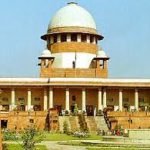This case involves appeals concerning the entitlement of employees from Co-operative Societies to pension and gratuity after their absorption into the Madhya Pradesh State Electricity Board (MPSEB). In Madhya Pradesh, numerous Co-operative Societies involved in electricity distribution faced financial difficulties, leading to a policy decision in 1995 to merge them with the MPSEB. This merger ultimately took effect from 15.03.2002, with terms and conditions for absorption declared by the MPSEB in 2004 and 2006. A key condition stipulated that “Pension/gratuity will be payable to the employees absorbed in the Board as per the rules/regulations of the concerned society”.
Multiple rounds of litigation ensued, including a Writ Petition filed by the Bijli Karamchari Sangh (BKS) in 2005 seeking to extend benefits to absorbed employees4. A subsequent judgment in Panchraj Tiwari in 2014 involved a Civil Appeal regarding terms of absorption. A Single Judge’s judgment in 2015 was challenged, leading to a Division Bench order in 2016 which was dismissed. The Full Bench of the High Court of Madhya Pradesh in 2019, while answering two referred questions, held that the employees were generally not entitled to pension unless specifically provided by their absorption terms, and that service for pension counting would be from the date of absorption into MPSEB. Importantly, some contempt proceedings, which arose from the same Full Bench judgment, had granted pension counting service from the date of absorption into MPSEB to members of the BKS.
Law Involved
The primary legal considerations revolve around the terms and conditions of absorption of the Co-operative Societies’ employees into the MPSEB. The rules and regulations of the concerned Society were initially stipulated to govern pension and gratuity3. Critically, the Madhya Pradesh Civil Services (Pension) Rules were examined to determine the qualifying period for pension. Specifically, Rule 3(p) defining ‘Qualifying service’ and Rule 12 regarding the commencement of qualifying service were considered11. Previous judgments, such as Panchraj Tiwari v. Madhya Pradesh State Electricity Board and Others, which discussed the principle of “functional integration” upon merger of services, also formed a crucial part of the legal framework. The Supreme Court also exercised its power under Article 142 of the Constitution of India to ensure complete justice and avoid disparity and discrimination due to the multiplicity and long duration of proceedings.
Reasoning
The Supreme Court identified the core issue as the admissibility of pension to absorbed employees and whether their service rendered in the Co-operative Societies prior to absorption should be counted for pension calculation. The Court noted the High Court’s Full Bench judgment of 2019 had concluded that employees were not entitled to pension unless specifically provided under their absorption terms, and that only service from the date of absorption into MPSEB would count for pension.
However, the Supreme Court highlighted an inconsistency: while the Full Bench denied a general pension entitlement, subsequent contempt proceedings based on that very judgment had granted pension to some BKS members, counting their service from the date of absorption89. This created an “ambiguity” and “disparity” amongst similarly situated employees.
The Court further reasoned that denying pension solely based on their original employment with a Co-operative Society, especially when performing the “same duties and discharging the same responsibilities” as other MPSEB employees, would be “wholly unjust to deny pension benefits” and amount to “unjust discrimination”. It considered the peculiar facts and circumstances of the case, concluding that absorbed employees were indeed entitled to pension.
Regarding the length of service for pension calculation, the Court meticulously analysed the Madhya Pradesh Civil Services (Pension) Rules. While Rule 3(p) includes service under “any other order or rule” as qualifying service, the Court found that the service rendered in the Societies prior to absorption cannot be counted for pension purposes. This is because such service was not under the State Government and was not governed by its rules. Therefore, their eligibility for pension commences from the date of their absorption into MPSEB.
To bring “quietus” to the prolonged litigation and to ensure consistency, the Court decided to invoke its powers under Article 142 of the Constitution of India.
Holding
The Supreme Court allowed the appeals to a specific extent, issuing the following directions to finally resolve the dispute:
The appellants (absorbed employees) are entitled to be paid pension by the MPSEB.
This pension entitlement will take effect from their respective dates of absorption into the MPSEB.
The service rendered in the Co-operative Societies prior to their absorption into MPSEB shall not be counted for the purpose of pension calculation.
The impugned orders of the High Court stand modified in accordance with these directions.
The respondents (MPSEB) are directed to implement these directions within four months from the date of the order.
All arrears of pension must be paid within the same four-month period.
Vijay Kumar Joshi V. Akash Tripathi And Others
Supreme Court: 2025 INSC 670: (DoJ 13-05-2025)






